
The Business Side Of Competitive Sailing With Atlas Ocean Racing Managing Director Maxime Grimard
Maxime Grimard | Managing Director | Atlas Ocean Racing

We take pride in being able to share the stories of hard-working individuals across all competitive sports. The sailing sport of competitive ocean racing is no exception! Through questions answered by Maxime Grimard, Managing Director at Atlas Ocean Racing, you will be able to see that that sailing is not just a recreational lifestyle for the rich and boujee. You will also see that competitive ocean racing is much like others in a business sense. There is a business side to competitive ocean racing, which you may not have known much about.
Before we begin, give us a little update on how your job has changed since the World Health Organization (WHO) declared COVID-19 a global pandemic.
My job has been impacted due to the COVID-19 situation as all the sailing events we were supposed to take part in were cancelled. We had a tour scheduled in Europe with 2 Transat races over the summer, which are major events in a sailing season, but nothing will happen in 2020. We’re taking advantage of that time ahead of us no to plan a safe way to bring back to Canada our sailboat which is stuck in Antigua, and to think of how we can come up with a feasible racing program for the next years. I spend a lot of time on the phone with the main sponsor and boat owner to think of how we can respond to the company’s business interests while maintaining a strong and ambitious program from 2020-2024.
Tell us about your role as the Managing Director of the Atlas Ocean Racing.
As Managing Director I’m responsible for the overall operations of the organization. We’re a sailing team with activities from North America to the Caribbean Islands, so there’s a lot of logistics coordination involved. I work closely with the main sponsor of the team and the boat owner to clarify the vision and the development of our programs on a 3-4 scope : we need to select which events and races we want to take part in, and then think about the ways to make it happen!
I’m also involved in our marketing efforts and sponsoring initiatives. I’ve negotiated some of the partnership agreement we have, and then I make sure to keep the sponsors happy with the team’s results and marketing content produced.
As one of the skippers among the team, I also take part in most of the sailing events and races, and do my best to provide safe and unique experiences to our crew members and VIP guests.
(Photo Credit Below: Chantal Brian)
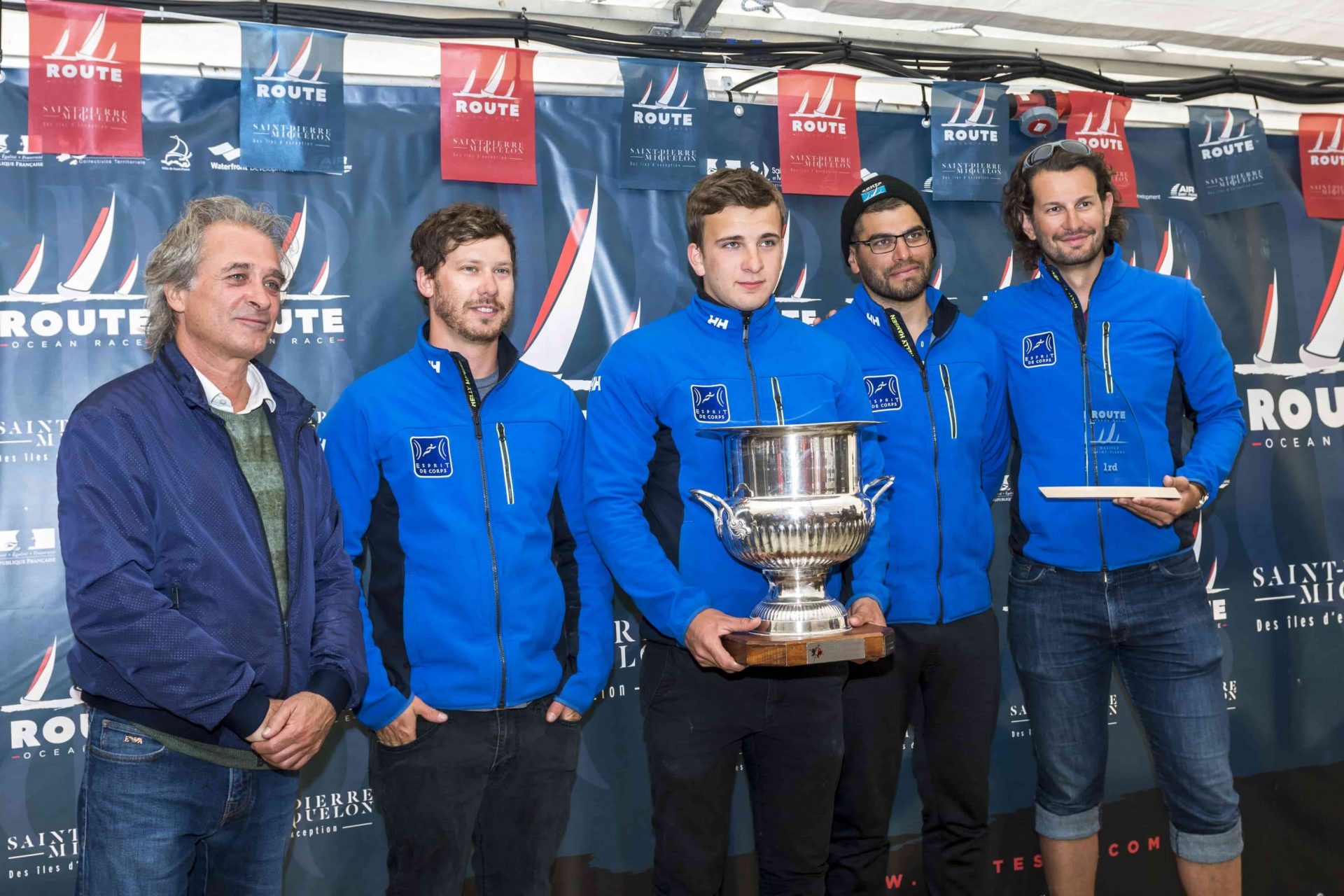
What does a typical day look like for you?
That’s one thing I’m proud of: no routine! Some days are spent at sea having fun on the long waves of the Ocean or pushing hard to win a race. Some others can be spent at a shipyard in the middle of nowhere trying to get the boat ready to sail. And of course, some other days I still need to seat at a desk, put on a more corporate outfit and deal with day-to-day tasks and business meetings.
(Photo Credit Below: Marie-France-L’Ecuyer)
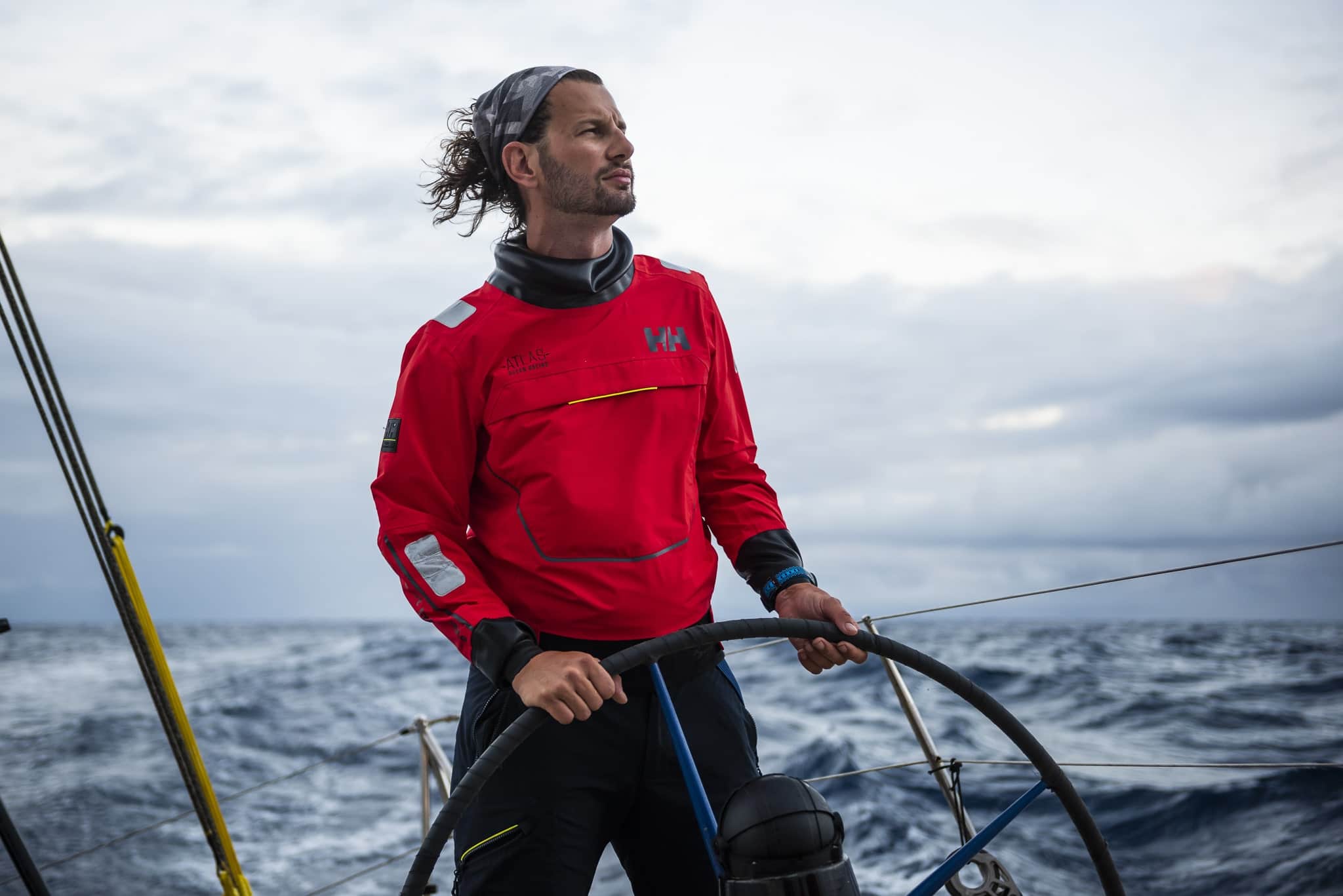
Can you explain more about the history of Ocean Racing as a competitive sport?
Sailing teams have existed for almost centuries and as many sports, started as a gentlemen’s activity reserved to the exclusive world of rich boat owners and millionaires. Nonetheless, I consider that the sport has changed a lot over the last 60 years, and opened itself to more social categories. Some famous sailors like Eric Tabarly or Sir Robin Knox-Johnston have played a very important role in increasing the awareness of ocean racing to greater audiences with the first majors events like The Transat Race, the Whitbreat Race, and the Golden Globe Race.
As a mechanical sport, you can compare it’s evolution with the one of the Formula One. Teams and skippers have always pushed to be the fastest on the water, resulting in great innovations and cultural changes among the sport. Nowadays you have boats that can sail around the world in roughly 40 days, and some others almost fly above the water at 40-50kts.
(Photo Credit Below: Marie-France-L’Ecuyer)
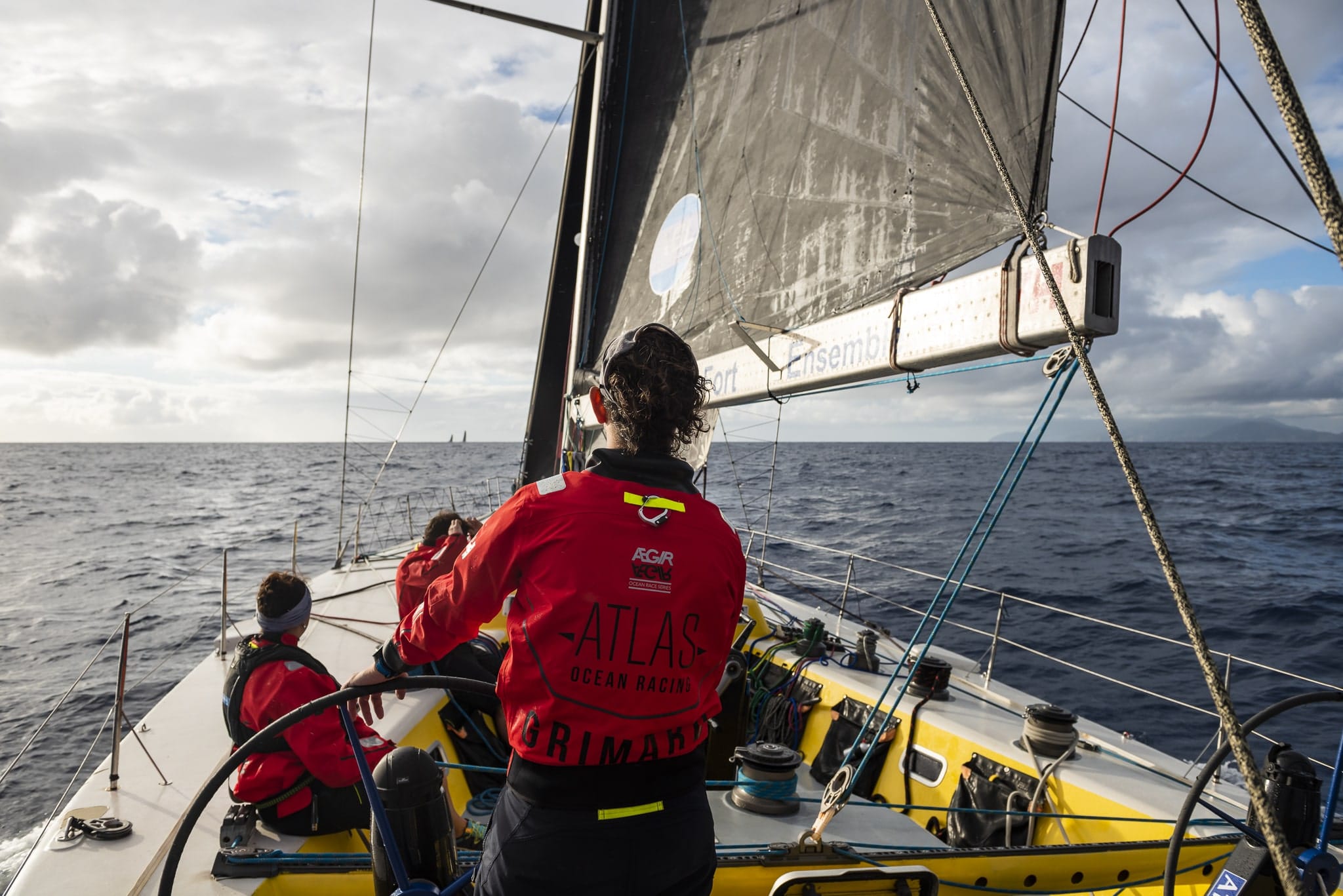
When was the point you realized that you were meant to do this career? Take us through that realization.
Back in 2014 I was offered a job in Montréal, Canada to work in Business Development for company that just acquired a 60ft racing sailboat called a VO60. I was offered to convey the newly acquired boat from Amsterdam to Canada. I was in France at that time and didn’t hesitate for a second before accepting. I thought it’d be a once in a lifetime chance to move to a country “the old way” instead of taking a plane.
When sailing across the Atlantic with the rest of the crew, I remembered the great moments I had as a kid when going sailing in Bretagne, France. In my childhood I always had an interest for sailboats, and admiration for explorers and sailors. My parents and I lived 400kms from the coast so I grew up playing basketball in competitive leagues. I saw that sailing with a crew (which is a different philosophy than solo sailing) would quench my thirst of adventure while living the same feelings and sense of camaraderie that I loved in basketball. And it’s easier on the knees 😉
Since 2014 I progressively acquired more and more seamanship, got more and more involved in sailing and led the development of the team with the owner of the boat. And I feel lucky to be spending so much time at sea doing something I love for a living!
Take us through four memorable experiences you have had thus far with Atlas Ocean Racing.
- I think you never forget the first time you have to call for MAYDAY and ask to be evacuated from your boat. In May 2019 my team and I got caught in a storm near the coasts of Nova Scotia and ended up totaling the boat on the rocks at 4am. Long story short, we lost a sail overboard that got caught in our keel and destroyed the propeller. The boat was pushed by the wind and waves on the rocks of a small island, but we managed to evacuate safely, and nobody got hurt.
- Rescuing the crew of S/V Montereyduring the Antigua Bermuda Race 2017 is a much nicer memory! We were competing in a 1,500kms offshore race on the Atlantic when one night (around 4am again…), one of our competitors took on too much water and had to fire flares in the darkness. We doused our sailed and motored to their position where the 6 crew were awaiting to get in their liferaft. We managed to get them out of there, and we finished the sail together. As a coincidence, 4 of them where from Toronto, and 2 from Bermuda. Every year we enjoy getting together for a diner and talk about it. We all stayed friends since that tragic event.
- Getting to Saint-Pierre et Miquelon on my first Transat in 2014. We had spent 15 days crossing the ocean with just 6 people and no auto-pilot. We were having huge issues with the onboard engine (crucial to charge the batteries of the navigation instruments for example), we had almost no food left and experienced extremely bad and cold weather. Getting to shore is always a great feeling: you enjoy your first hot shower in 2 weeks, you stuff your mouth with delicious food for the nearest restaurant, and you feel alive!
- Getting caught in 60-70 kts of wind while crossing from Halifax to Sint Maarten in November 2016, having to fight the elements and hope that the boat would hold. We were literally pushed back by winds as strong as a hurricane and had to go into survival mode for almost 2 days. I remember that when we reached the eye of the weather system, the conditions calmed down and the crew thought we were out of trouble, but my skipper and I knew we were just half-way there…
- Your first race is also something you keep in mind for a long time! We took part in the 2016 Halifax to Saint Pierre and went through 45kts upwind for 2 days. The boat was in bad shape, we were lacking experience and gear, and the race took a toll on the entire crew. We finished 2nd, only 30min behind the winner. We had no idea where the rest of the fleet was, and we saw them ahead of us on the final miles of the race. We’ll always regret not having been able to push a bit harder at that moment.
(Photo Credit Below: Marie-France-L’Ecuyer)
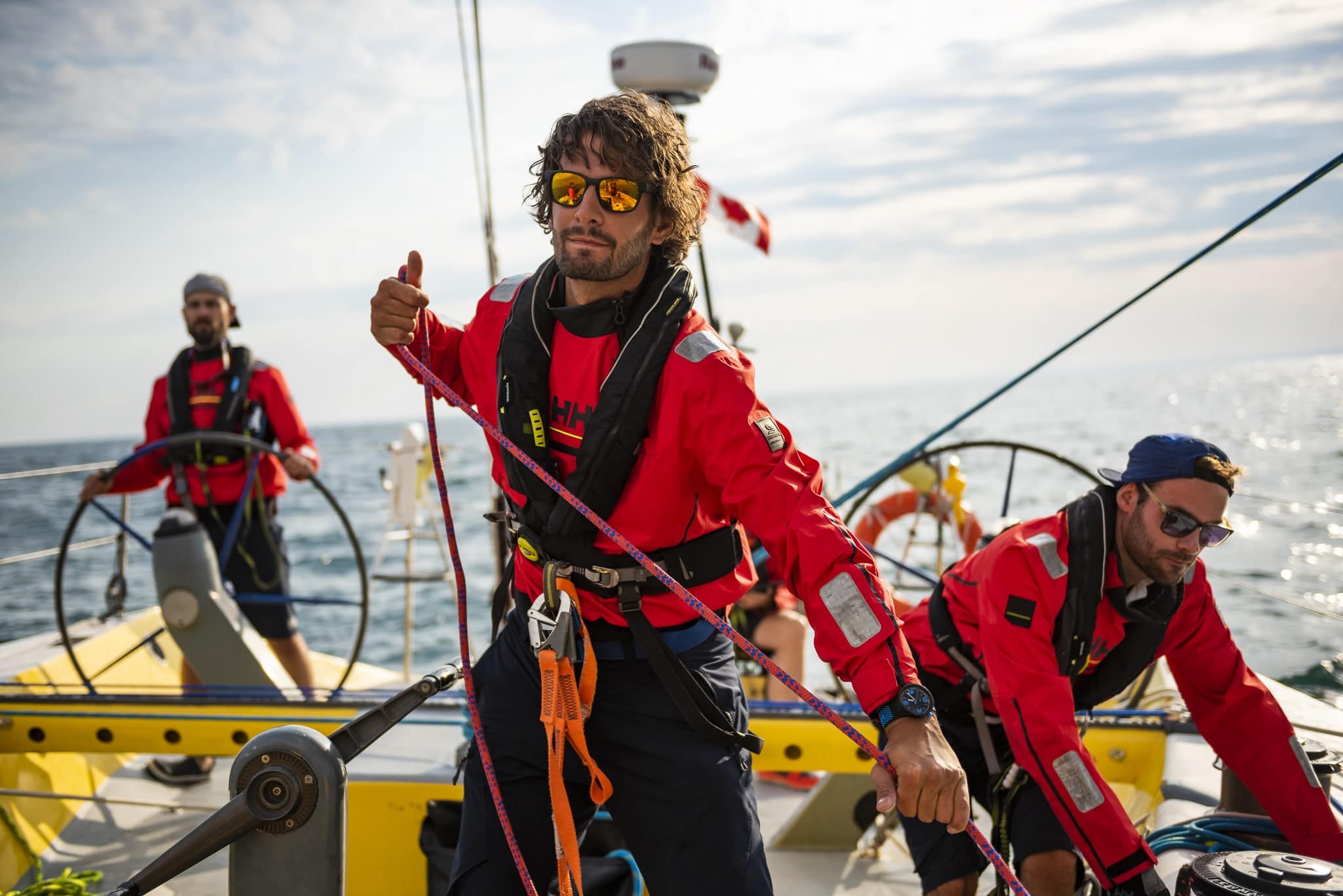
Can you speak to the transition you had working at Esprit De Corps to now being the Managing Director at Atlas Ocean Racing. Was the transition easy or difficult?
I can’t really speak of a transition from the two organization as Esprit de Corps is the main sponsor of Atlas Ocean Racing. My implication with the sailing team was very moderate at the beginning, but as the projects grew bigger, my employer and I decided that I would still support the development of Esprit de Corps, and be a leader in some corporate projects, but my main occupation would be to manage the team.
The racing program brings a lot of attention and business development opportunities to Esprit de Corps. The team is central in the company’s brand marketing initiatives so in a sense I’m working for Esprit de Corps as the Managing Director of their racing team.
What is one of the most challenging parts of your job?
We’re operating on a market where companies are not yet aware of all the sponsoring benefits that sailing can bring and coping up with budgets is the most challenging part of the job. We sometimes need to be very creative to find solutions that allow us to stay competitive while facing other teams with more financial means.
As we’re not fully financed by sponsors, we had to come up with the operations model of a club. Each member pays a membership fee to be part of the club, and then contributes to the budget of the events they want to take part in. When people come sailing with us we need to make sure that they understand they’re not charter clients who paid for a cruise, but that they will be asked to take part in all maneuvers and work hard to win.
A tough aspect is also to deal with the idealized image the public can have about sailing in Canada. Most people still think about it as a sport reserved for the rich and famous. Amateurs usually think of the smooth sailing in the Caribbean and don’t realize that we’re taking risks, and that we’re performing in a very unstable environment.
(Photo Credit Below: Marie-France-L’Ecuyer)
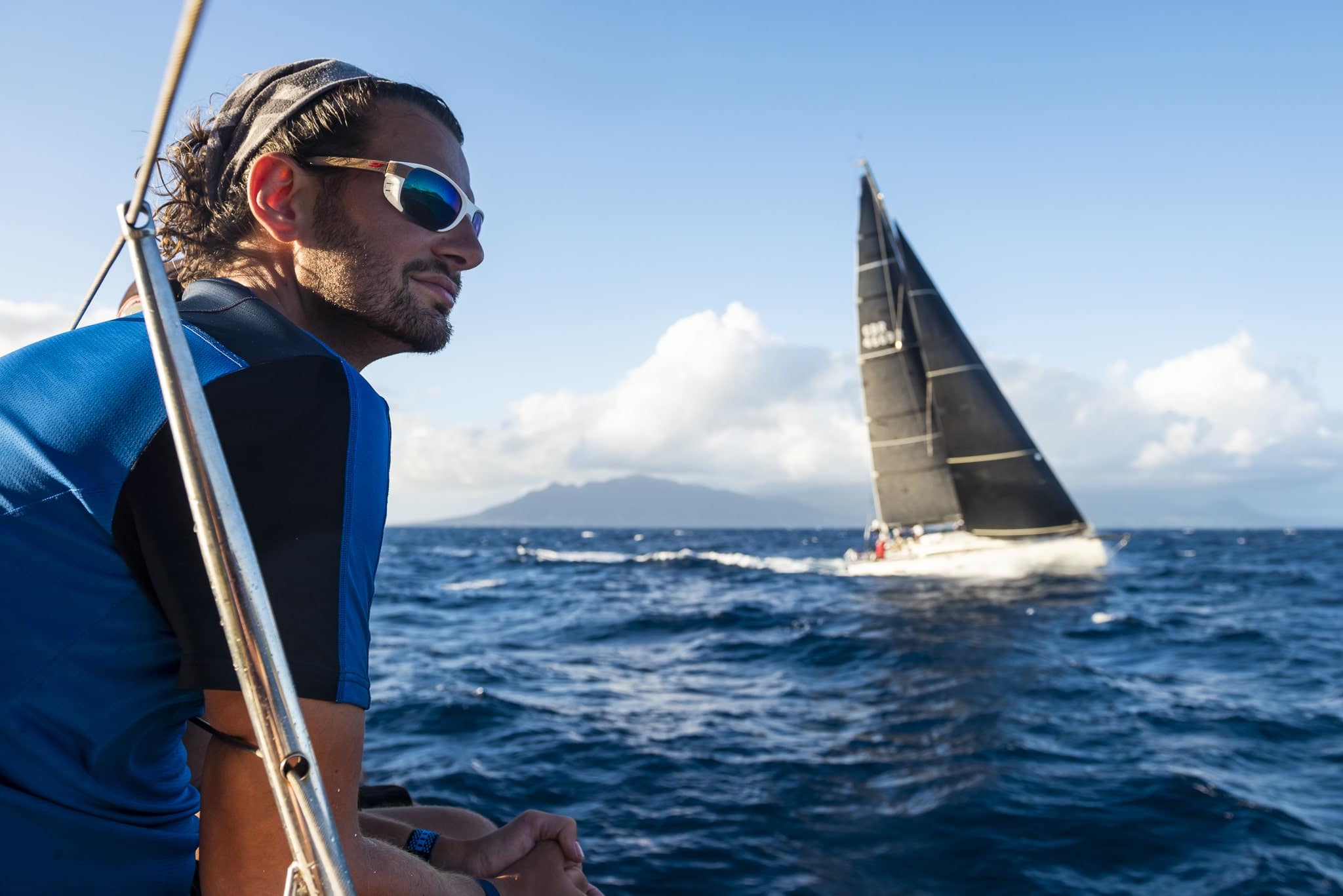
What is one of your favourite memorable quotes?
1
“A smooth sea never made a skilled sailor”. As you make your way through that industry and spend more time at sea you figure that you will be learning to sail all your life. It’s okay to be going out on the water only when the sun is shining and the sea is smooth, but that won’t help you when the conditions get tougher. It’s a quote that be easily translated in life.
2
“There are 3 types of people: the living, the dead and those who are at sea”. Sailors think differently than the rest of the world. We approach life and situations with a different philosophy than most people, humbled by the strength of Mother Nature.
[get_current_post_author_pic_and_name]
From sailing across the Atlantic Ocean in 2014 to competing in the Antigua Bermuda Race in 2017 and finally to an unforgettable mayday call while sailing in 2019, Maxime’s stories while sailing on the seas are endless. His passion for sailing and competition is undeniable. His hardest challenge…getting Canadians to see sailing through a competitive lens; Maxime, Ocean racing is indeed a sport with a business side, and is facing all the same challenges and opportunities amidst the COVID-19 pandemic.
The Latest







